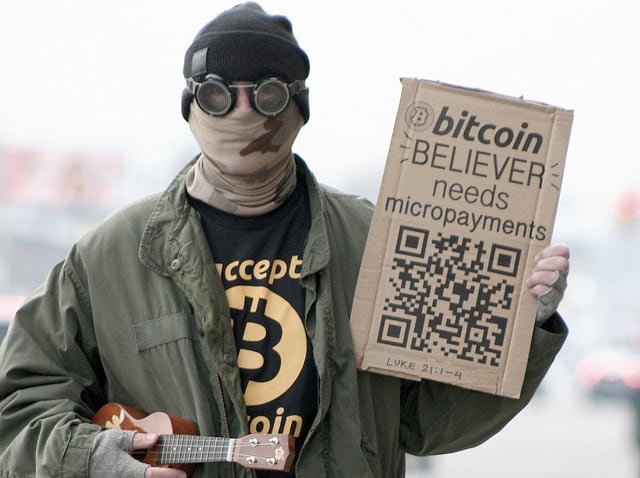
Previous surveys that are aimed at understanding consumers’ viewpoints on bitcoin have been very telling. One study conducted earlier this year found that a growing number of Americans know what bitcoin is and how it works but they still don’t trust it enough to invest in. Another poll found that nearly half of bitcoin businesses are open to paying their employees in bitcoin.
Last week, the results of a new survey by Morning Consult were released as part of its National Finance Tracking Poll. The poll found that a majority of Americans have heard at least “a little” about bitcoin, while more than one-third (36 percent) have heard “nothing at all.”
When respondents were informed that bitcoin is not controlled by any government and then asked if the government should permit consumers to use bitcoin to buy goods and services, a whopping 58 percent of likely voters said no, while 42 percent said yes.
Furthermore, survey participants were asked how likely they would be to consider using bitcoins to purchase goods and services, in which 27 percent of likely voters said “not too likely” and 46 percent “not likely at all.”
The results are indeed surprising even with the growing ubiquity of the peer-to-peer decentralized virtual currency and the enormous number of global retail merchants and companies accepting bitcoin as a method of payment.
Digital currency experts aver that more education and consumer awareness needs to be made in order for the average consumer to attain a greater grasp of the virtual currency industry. The community is pleased that investment, widespread adoption and celebrity usage of bitcoin is rising at a fast rate, but with stories like Mt. Gox, Silk Road and government reports of illicit activity affiliated with bitcoin then it could hurt the overall cryptocurrency market.
Analysts present the case that once bitcoin develops a secure, user-friendly infrastructure and this becomes known on a wide-scale then more consumers will be open to understand the industry and likely to start utilizing the virtual currency.
“The financial industry benefits greatly from disruptive technology, but security is unfortunately a bigger challenge than some new financial innovators expect.” Tim O’Brien, Yodlee’s senior vice president of operations and information security, said in statement. “Bitcoin has addressed some major opportunities in the financial system, but the vulnerability of some Bitcoin exchanges, along with the currency’s overall volatility, are still serious issues.”
Of course, the survey did highlight the many gaps in bitcoin support. For instance, younger, educated, wealthier and non-religious men are likelier to know more about bitcoin and virtual currencies than their counterparts.
The online poll was conducted with 1,754 likely 2014 voters between May 29 and Jun. 1, 2014. The survey contains a margin of error of +/- two percentage points.







